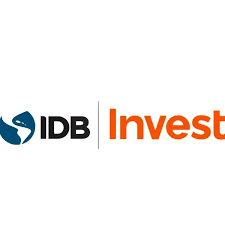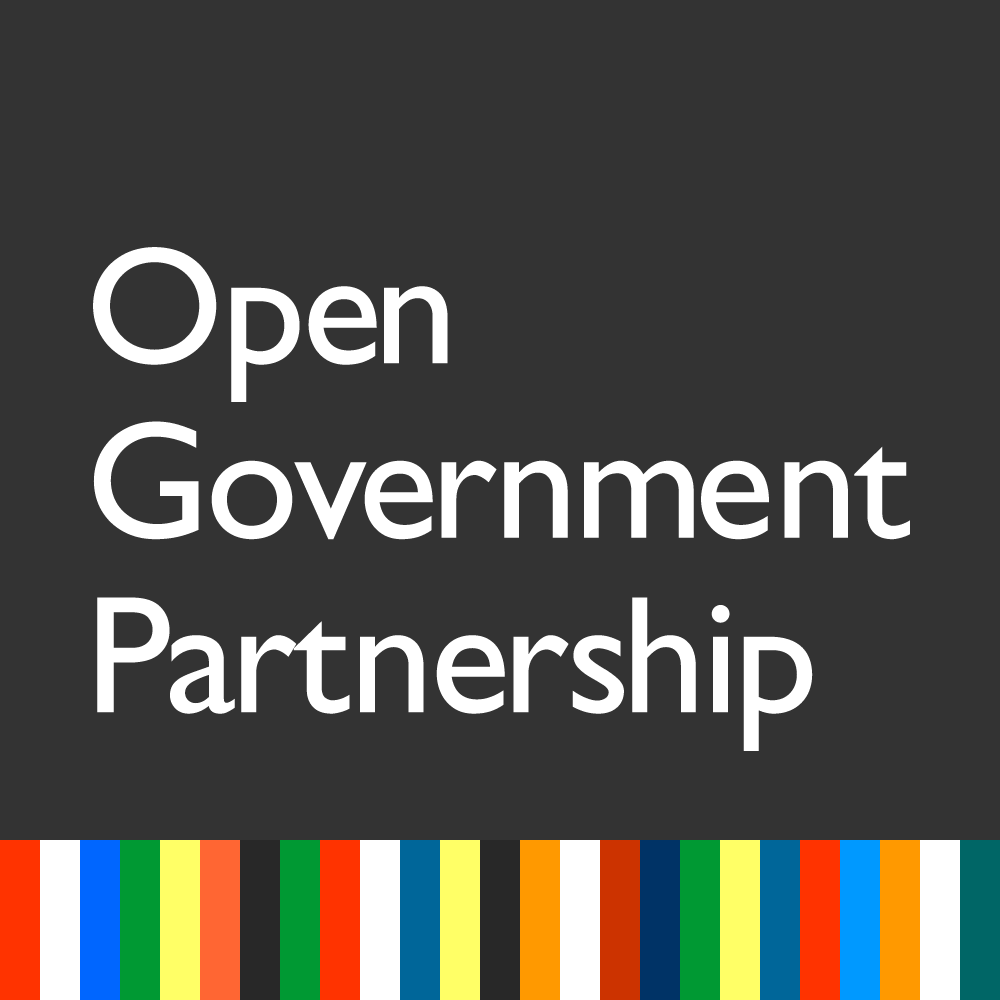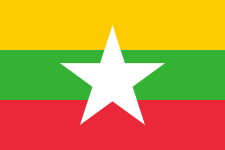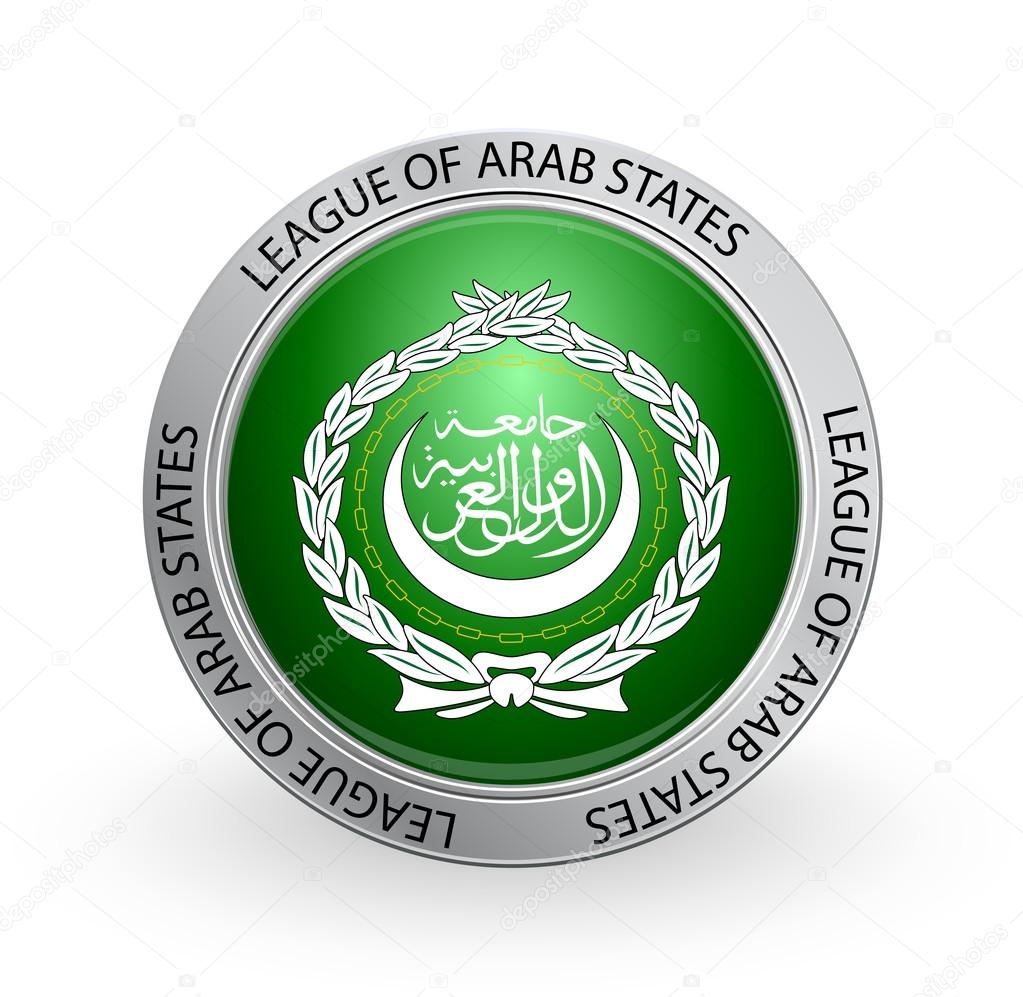Trivia Night: It’s Your Right to Know!

Wednesday 26 September 2018
7:00 p.m. – 8:30 p.m.
Board Game Room Cafe
1256 Barrington St., Halifax
Trivia Night: It’s Your Right to Know!

Wednesday 26 September 2018
7:00 p.m. – 8:30 p.m.
Board Game Room Cafe
1256 Barrington St., Halifax
 27 August 2018,
27 August 2018,
IDB Invest is conducting a consultation on the draft Access to Information Policy it circulated in April 2018. In its Analysis of the draft Policy, released today, the Centre for Law and Democracy (CLD) welcomes advances over the 2005 Policy which is currently in force but also notes that significant improvements are needed if IDB Invest is to respect international standards relating to the right to information. As with many international financial institution (IFI) information policies, the regime of exceptions is the most problematical area, but weaknesses are also found in other areas, notably in relation to the procedures for making and processing requests and the system of appeals.
“The new policy proposals would do a lot to make IDB Invest more transparent”, said Toby Mendel, Executive Director of CLD. “But it is failing to take the bold steps that are needed if it really wants to realise the principle of maximum disclosure proclaimed in the draft Policy.”
One of the more serious problems with the regime of exceptions is that it essentially grants third parties a veto over the disclosure of information provided by them, instead of simply protecting their legitimate interests. A more general problem is that while many exceptions start with a reasonably tight statement of the interest being protected against harm, they go on to list a number of overbroad, non-harm tested categories of exempt information.
Other areas of concern include:
CLD urges IDB Invest to introduce substantial changes to the draft Policy, in line with the recommendations in its Analysis.
CLD’s Analysis of IDB Invest’s draft Policy is available here: Analysis of IDB Invest’s Draft Access to Information Policy
For further information, please contact:
Toby Mendel
Executive Director
Centre for Law and Democracy
Email: toby@law-democracy.org
Tel: +1 902 431-3688
www.law-democracy.org
twitter: @law_democracy

27 July 2018,
On 23 July 2018, the government of Canada published its Draft Commitments: Canada’s 2018-20 National Action Plan on Open Government, one of its obligations as a member of the Open Government Partnership (OGP), which Canada currently co-chairs. In response to a call for feedback, the Centre for Law and Democracy (CLD) today sent a formal Statement to the government outlining how the Draft Commitments should be improved to meet public demands in terms of access to information.
“We welcome the fact that the government is promising a ‘full review’ of the Access to Information Act,” said Toby Mendel, Executive Director, CLD. “However, an identical promise to review the Act by the end of 2018 in the last National Action Plan will not be met and so, this time, we are asking for something more concrete, such as the tabling of a bill amending the Act in Parliament.”
The government has largely failed to deliver on its promises to improve the Access to Information Act, despite some progress in the form of an Interim Directive adopted in May 2016 and Bill C-58, currently before Parliament. In addition to calling for a more robust main commitment in this area in the new Action Plan, the CLD Statement focuses on:
The CLD Statement includes specific recommendations for improving Canada’s Draft OGP Commitments. The Statement is available here: Statement on the Draft Access to Information Commitments of Canada’s 2018-2020 National Action Plan on Open Government.
For further information, please contact:
Toby Mendel
Executive Director
Centre for Law and Democracy
Email: toby@law-democracy.org
+1 902 431 3688
www.law-democracy.org
twitter: @law_democracy
 11 July 2018,
11 July 2018,
The Centre for Law and Democracy (CLD) has been working closely with the Information Commissions of Khyber Pakhtunkhwa and Punjab provinces in Pakistan to develop a sophisticated, comprehensive methodology for assessing the quality of implementation of right to information (RTI) laws. Although the methodology is being designed in Pakistan, it will be easy to adapt it for other jurisdictions.
“This is groundbreaking development work in the area of the right to information,” said Toby Mendel, Executive Director, CLD.“It is really exciting to be able to work with the Information Commissions and other stakeholders in Pakistan on something that will hopefully have global application.”
The impetus for preparing this methodology has come in part from Sustainable Development Goal (SDG) Indicator 16.10.2, which looks at whether States have adopted and implemented right to information legislation. The RTI Rating provides us with an accurate assessment of the first part of this – namely the adoption of RTI legislation – and this methodology supplements that by assessing implementation. The Methodology looks at four key areas, namely Central Measures, focusing on information commissions, Institutional Measures, focusing on structural measures taken by individual public authorities (like appointing an information officer), Proactive Disclosure and Reactive Disclosure (the processing of requests).
Extensive consultations around the draft methodology were conducted in February and again last week. The goal is to finalise the methodology soon and then pilot its application in one or two jurisdictions in Pakistan before revising it to take into account those results. The Methodology has been developed with the technical support of the German Development Cooperation and the Swiss Agency for Development and Cooperation.
For further information, please contact:
Toby Mendel
Executive Director
Centre for Law and Democracy
Email: toby@law-democracy.org
+1 902 431 3688
www.law-democracy.org
twitter: @law_democracy

2 July 2018,
Eight international organisations that promote respect for the right to information released a Joint Statement today calling on the Ghanaian authorities to review the Right to Information Bill, 2018, which is currently before parliament. The Statement outlines five key areas where the Bill fails to meet international standards.
“We very much welcome the fact that Ghana is finally moving forward with this important piece of legislation,” said Toby Mendel, Executive Director, CLD. “However, the current version of the Bill needs to be improved so that it can provide a strong foundation for fighting corruption and promoting good governance and robust democratic participation for the people of Ghana.”
In addition to the Centre for Law and Democracy, the seven other signatories to the Joint Statement are Access Info Europe, Africa Freedom of Information Centre, ARTICLE 19 Eastern Africa, Commonwealth Human Rights Initiative, Freedom of Information Coalition, Nigeria, International School for Transparency and Media Rights Agenda.
The five areas addressed in the Joint Statement are Exceptions, Scope and Requesting Procedures, Appeals, The Duty to Publish (Proactive Disclosure) and Sanctions, Offences and Promotional Measures. For each issue, the Joint Statement highlights the key amendments that are needed to bring the Bill into line with better practice.
On 12 June 2018, CLD released a detailed analysis of the Bill along with an assessment of it based on the RTI Rating (www.RTI-Rating.org). The Bill scored 89 points out of a possible maximum of 150, which would place Ghana in 49th place globally out of the 111 countries currently on the Rating.
The Joint Statement is available at: Joint Statement on Ghana’s Right to Information Bill, 2018, CLD’s 12 June analysis is available at: Analysis of Ghana’s Right to Information Bill
For further information, please contact:
Toby Mendel
Executive Director
Centre for Law and Democracy
Email: toby@law-democracy.org
+1 902 431 3688
www.law-democracy.org
twitter: @law_democracy

18 June 2018,
The Centre for Law and Democracy (CLD) is seeking a Legal Officer to begin as soon as possible. We are looking for a successful, highly motivated person who will work from Halifax, Canada. The successful applicant will be rewarded with exciting legal work, high level representational opportunities and the chance to travel globally.
The Legal Officer will have a range of responsibilities related to safeguarding human rights, including freedom of expression and the right to information, as part of a small, dynamic human rights organisation with a unique mandate. The position combines legal analysis and top level standard setting research with on-the-ground campaigning across the Global South, in collaboration with a diverse range of activists, partners and subject matter experts. Direct advocacy is a major part of CLD’s work, and the position includes opportunities to engage with policy-makers at the highest level, as well as to dialogue with the world’s foremost experts on human rights. The position includes travel opportunities, as well as representing CLD at various international conferences and meetings. Salary for the position will be competitive and commensurate with experience. The Job Description is available at: https://www.law-democracy.org/live/wp-content/uploads/2018/06/Legal-Officer.Job-Description.18-06.pdf
About the Organisation:
CLD is an international human rights organisation based in Halifax, Nova Scotia, which provides expert legal services globally on foundational rights for democracy, with a particular emphasis on freedom of expression, freedom of association, the right to information and digital rights. Our major ongoing projects include:
Essential Qualifications
Preferred Qualifications
Those interested in applying should send a copy of their CV, cover letter and latest law school transcripts to info@law-democracy.org, by 11 July 2018.
The Centre for Law and Democracy is committed to diversity and is an equal opportunity employer. We value and encourage applicants for all positions without regard to race, colour, religion, gender, sex, national origin, age, disability, marital status, sexual orientation, gender identity or expression, or any other legally protected status. This commitment applies with regard to all aspects of one’s employment, including hiring, transfer, promotion, compensation, eligibility for benefits, and termination.

12 June 2018,
The Centre for Law and Democracy (CLD) has released an Analysis of Ghana’s 2018 Right to Information Bill, which is now before parliament. The Analysis welcomes the fact that Ghana is finally moving forward to adopt this key piece of democratic legislation. At the same time, it highlights a number of weaknesses in the Bill, which would only be in 49thplace globally according to the RTI Rating.
“Ghana has been struggling to pass this legislation for a long time, so it is encouraging that the country is finally moving forward on it,” said Toby Mendel, Executive, CLD.“However, the Bill falls far short of better practice in this area, including that of the six African countries that are in the top twenty countries globally on right to information legislation.”
Some of the key problems with the Bill include:
CLD urges the Ghanaian authorities to incorporate our recommendations into the Bill before it is passed, so as to bring it more fully into line with international standards.
The Analysis is available here: Analysis of Ghana’s Right to Information Bill.
The Right to Information Bill is available here: Right to Information Bill, 2018
For further information, please contact:
Toby Mendel
Executive Director
Centre for Law and Democracy
Email: toby@law-democracy.org
+1 902 431 3688
www.law-democracy.org
twitter: @law_democracy

The government of Bangladesh recently approved a Digital Security Bill which has now been sent to parliament for its review and ultimately adoption. An Analysis by CLD shows that the Bill fails in several important ways to respect international guarantees of freedom of expression. This is despite the fact that a lot of criticism has already been directed at provisions in Bangladeshi laws which restrict freedom of expression online, under which 21 journalists were charged over just four months in 2017.
“The Bill includes numerous provisions which either duplicate existing provisions in the Penal Code or establish restrictions on digital content which fail to respect international standards”, said Toby Mendel, Executive Director of CLD. “We very much hope that the government recognises that this Bill is not the right way forward and, instead of trying to pass it, consults with local stakeholders with a view to amending it.”
Some of the more serious problems with the Bill include:
CLD calls on the government to substantially revise the Bill to address these and other problems, and then to table it in Parliament again.
The Analysis can be accessed here: Analysis of Bangladesh’s Draft Digital Security Bill
For further information, please contact:
Toby Mendel
Executive Director
Centre for Law and Democracy
Email: toby@law-democracy.org
+1 902 431-3688
www.law-democracy.org
twitter: @law_democracy
Today, in Accra, Ghana, the four specialised mandates tasked with promoting and protecting freedom of expression at the UN, OAS, OSCE and African Commission launched their 20th annual statement, the Joint Declaration on Media Independence and Diversity in the Digital Age. The Joint Declaration, which was drafted with the assistance of the Centre for Law and Democracy (CLD), addresses modern threats to media independence and diversity, focusing separately on legal, political, technological and economic threats.
Click here for Joint Declaration in English
Click here for Joint Declaration in French
Click here for Joint Declaration in Spanish
Click here for Joint Declaration in Arabic
Click here for Joint Declaration in Russian
“The Joint Declaration breaks new ground in several respects”, said Toby Mendel, Executive Director of CLD. “Among other things, it calls for strict limits in relation to laws focusing specifically on digital communications and for politicians to refrain from putting pressure on online platforms to regulate content.”
The Joint Declaration also highlights a number of modern threats, including:
The Joint Declaration also directs some recommendations to media and online platforms, including to respect human rights, to operate professionally, including by adopting fact-checking systems, to operate as transparently as possible, beyond minimum legal requirements, and, specifically for online platforms, to support the work of the media, while respecting media independence.
For further information, please contact:
Toby Mendel
Executive Director
Centre for Law and Democracy
Email: toby@law-democracy.org
+1 902 431-3688
www.law-democracy.org
twitter: @law_democracy
 A new Analysis by the Centre for Law and Democracy (CLD) of the latest proposed Right to Information (RTI) Law reveals a relatively robust draft but with some shortcomings. The RTI Law, which will allow citizens to obtain information from public bodies, is key in any democracy, enhancing government accountability and improving trust between government and the people.
A new Analysis by the Centre for Law and Democracy (CLD) of the latest proposed Right to Information (RTI) Law reveals a relatively robust draft but with some shortcomings. The RTI Law, which will allow citizens to obtain information from public bodies, is key in any democracy, enhancing government accountability and improving trust between government and the people.
“It is encouraging that Myanmar is moving forward on this important issue, which will help it in its democratic transition,” said Toby Mendel, Executive, CLD. “We hope that when the law is placed before parliament they will be open to making changes to improve it further. Our work on this continues by working with media organisations and civil society organisations for which this law will be essential.”
The draft RTI law was released in late December 2017. When adopted, Myanmar will join the nearly 120 countries around the world that have RTI legislation, although the draft has not yet been placed before parliament. The Analysis was prepared by CLD with the support of International Media Support (IMS) and Fojo Media Institute.
The Analysis points to both “easy wins”, changes which are relatively easy to make, and ‘important gains’, changes that are important but which may either encounter more opposition or require a bit more effort. Some of the key points are:
We urge the parliament of Myanmar to consider the recommendations in our Analysis with a view to bringing the draft Law more fully into line with international standards.
The Analysis is available at: Myanmar: Analysis of Draft Right to Information Law
For further information, please contact:
Toby Mendel
Executive Director
Centre for Law and Democracy
Email: toby@law-democracy.org
+1 902 431 3688
www.law-democracy.org
twitter: @law_democracy
 The Centre for Law and Democracy (CLD) (Canada), Transparency Maroc (TM), Palestinian Center for Development and Media Freedoms (MADA) and Maharat Foundation (Lebanon) launched their project on Building Opportunities for Civil Society Engagement with the League of Arab States with a workshop in Rabat on 22-23 March 2018. The project seeks to explore ways to enhance transparency and opportunities for participation in the work of the League.
The Centre for Law and Democracy (CLD) (Canada), Transparency Maroc (TM), Palestinian Center for Development and Media Freedoms (MADA) and Maharat Foundation (Lebanon) launched their project on Building Opportunities for Civil Society Engagement with the League of Arab States with a workshop in Rabat on 22-23 March 2018. The project seeks to explore ways to enhance transparency and opportunities for participation in the work of the League.
The workshop, which was attended by civil society and media representatives, discussed the serious democratic deficit at the League as compared to other inter-governmental organisations (IGOs), including regional bodies like the Council of Europe and Organization of American States. Compared to these other IGOs, the League of Arab States releases far less information about its activities and operates in a far less participatory fashion.
Participants noted that IGOs are bound by the obligation to provide access to the information they hold (the right to information), which is recognised under international human rights law. They also have an obligation to operate in a participatory fashion, as provided for in Article 13 of the UN Convention Against Corruption. Being open and participatory promotes accountability, improves decision-making and helps combat corruption. It is now imperative for Arab IGOs, including the League of Arab States, to join in the international trend among IGOs to do better in these areas.
At the end of the workshop, participants agreed on the following recommendations for the League of Arab States to improve its performance in terms of openness and participation:
The LAS should conduct an open and inclusive consultation with Arab civil society with a view to putting in place a new framework for engagement. This should respect the following:
Ensuring access to information is key to building trust and to facilitating real engagement. The LAS should practise far greater levels of openness than in the past. Over time, it should adopt a dedicated information disclosure policy. In the meantime, it should do the following:
The LAS should undertake the following measures to improve engagement over the short term, pending the outcome of the consultation:
This information is available in French and Arabic at:Workshop on Civil Society Engagement at the League of Arab States [French], Workshop on Civil Society Engagement at the League of Arab States [Arabic].
For further information, please contact:
Toby Mendel
Executive Director
Centre for Law and Democracy
Email: toby@law-democracy.org
+1 902 431-3688
www.law-democracy.org
twitter: @law_democracy
Roula Mikhael
Executive Director
Maharat Foundation
Email: roula.mikhael@maharatfoundation.org
+961 3 612 413
http://www.maharatfoundation.org
Mousa Rimwa
General Director
Palestinian Center for Development and Media Freedoms (MADA)
Email: m.rimawi@madacenter.org
+970 22976519
http://www.madacenter.org
Fouad Zirari
Staff Coordinator
Transparency Maroc
Email: fouadzirari@gmail.com
+212 06 61 09 61 68
http://transparencymaroc.ma/TM/
 The government of Canada is currently preparing its fourth Action Plan for the Open Government Partnership (OGP) and the Centre for Law and Democracy (CLD) has contributed a Submission to Ideas Discussion for Canada’s Action Plan on Open Government 2018–20. CLD has provided comments on all of Canada’s previous OGP action plans. This time, unlike in the past, we are focusing on only one issue, namely the overriding need to reform Canada’s Access to Information Act.
The government of Canada is currently preparing its fourth Action Plan for the Open Government Partnership (OGP) and the Centre for Law and Democracy (CLD) has contributed a Submission to Ideas Discussion for Canada’s Action Plan on Open Government 2018–20. CLD has provided comments on all of Canada’s previous OGP action plans. This time, unlike in the past, we are focusing on only one issue, namely the overriding need to reform Canada’s Access to Information Act.
“Unfortunately, despite the introduction of Bill C-58, which aims to reform the Access to Information Act, very little will change”, said Toby Mendel, Executive Director of CLD. “Only one of CLD’s priorities for reform of the Act was addressed in Bill C-58, so we still need the government to commit to a proper process of reform.”
In its third OGP Action Plan, the government committed to a quick round of initial reforms, followed by “a full review of the Access to Information Act by no later than 2018.” The quick round of reforms took the form of Bill C-58, first tabled in Parliament on 19 June 2017. The Bill was roundly criticised not only by CLD but also by almost all independent stakeholders, including the Information Commission of Canada, for failing to address the many serious shortcomings in the Act. CLD’s analysis shows that Bill C-58 would raise Canada’s dismal score on the RTI Rating by only two points. It is also becoming clear that the third Action Plan’s commitment to conduct a full review of the Act by the end of 2018 will not be achieved.
In its submission, CLD is calling on the government to commit to conducting a full review of the Act and to tabling a bill to amend the Act in Parliament no later than mid-2019. If you agree, please support our call on the government website hosting these submissions here: https://open.canada.ca/en/node/1089.
Our full submission is available at: Submission on Canada’s Fourth Open Government Partnership Action Plan.
For further information, please contact:
Toby Mendel
Executive Director
Centre for Law and Democracy
Email: toby@law-democracy.org
+1 902 431-3688
www.law-democracy.org
twitter: @law_democracy
 The Asian Infrastructure Investment Bank (AIIB) published a Draft Policy on Public Information in January 2018. According to Comments by the Centre for Law and Democracy (CLD) and Bank Information Center (BIC), the draft Policy is a good start but far more is needed if it is to serve as a stable, effective mechanism for promoting transparency and access to information at the Bank.
The Asian Infrastructure Investment Bank (AIIB) published a Draft Policy on Public Information in January 2018. According to Comments by the Centre for Law and Democracy (CLD) and Bank Information Center (BIC), the draft Policy is a good start but far more is needed if it is to serve as a stable, effective mechanism for promoting transparency and access to information at the Bank.
“We welcome the fact that the draft Policy starts from a presumption of maximum disclosure”, said Toby Mendel, Executive Director of CLD. “But this is undermined in practice by a vague and highly discretionary regime of exceptions, very few set procedures for the making and processing of requests and an unclear and very limited system of appeals.”
“The draft Policy does incorporate a number of civil society recommendations, including an emphasis on accountability to stakeholders and an override of exceptions where this is mandated by a legitimate interest”, said Elizabeth Summers, Infrastructure Policy Manager, Bank Information Center. “However, among other problems, the Policy should aim to harmonise standards for openness across all of AIIB’s operations and include a list of documents that will be disclosed on a proactive basis.”
The CLD/BIC Comments are available here: Comments on the Draft Policy on Public Information of the Asian Infrastructure Investment Bank, while notice of the consultation and draft Policy are available at: https://www.aiib.org/en/policies-strategies/operational-policies/public-consultation/index.html.
For further information, please contact:
Toby Mendel
Executive Director
Centre for Law and Democracy
Email: toby@law-democracy.org
+1 902 431-3688
www.law-democracy.org
twitter: @law_democracy
Elizabeth Summers
Infrastructure Policy Manager
Bank Information Center
Email: esummers@bankinformationcenter.org
+1 (202) 624-0622
www.bankinformationcenter.org
 Information Commissioners from Sri Lanka and India undertook a mission to Mexico’s National Institute for Transparency, Access to Information and Personal Data Protection (INAI), the oversight body in that country, last week to exchange best practices and experiences regarding oversight of the right to information. During the technical visit, on 7-8 March 2018, they met with different local actors both within INAI and externally, while on 9 March 2018 they participated in a public workshop. The visit was organised by the Centre for Law and Democracy (CLD) with the support of The Social Architects in Sri Lanka, and a former Information Commissioner of Canada also participated.
Information Commissioners from Sri Lanka and India undertook a mission to Mexico’s National Institute for Transparency, Access to Information and Personal Data Protection (INAI), the oversight body in that country, last week to exchange best practices and experiences regarding oversight of the right to information. During the technical visit, on 7-8 March 2018, they met with different local actors both within INAI and externally, while on 9 March 2018 they participated in a public workshop. The visit was organised by the Centre for Law and Democracy (CLD) with the support of The Social Architects in Sri Lanka, and a former Information Commissioner of Canada also participated.
“The rich exchanges that took place during this visit will hopefully contribute to the strengthening of each participating commission’s work,” said Toby Mendel, Executive Director, CLD. “This visit demonstrates the benefits of South-South knowledge exchanges to building capacity to overcome right to information challenges.”
During the technical visit, INAI showcased information about its insitutional arrangements and practices. Representatives of civil society and regulated entities in Mexico also shared their persepectives regarding the implementation of the right to information. During the workshop, titled Information Oversight Bodies in North America and South Asia: An Exchange of Views, participants discussed the systemic strengths and weaknesses relating to oversight of to information in each of their countries and shared ideas about how to create truly open public administrations or transparency by design.
For further information, please contact:
Portia Karegeya
Legal Officer
Centre for Law and Democracy
Email: portia@law-democracy.org
+1 4243258650
www.law-democracy.org
twitter: @law_democracy
 The Centre for Law and Democracy issued a letter to British Columbia’s Minister of Citizens’ Service, Jinny Sims, copied to the Premier of British Columbia, John Horgan, commending their announcement that consultations will be planned to discuss amending the British Colombia Freedom of Information and Protection of Privacy Act (FIPPA) from 26 February to 9 April 2018. CLD urged that the consultation be followed promptly with concrete law reform proposals, and that the practice of posting online publicly the texts of access to information requests even before they have been responded to be stopped in order to avoid having a chilling effect on certain types of uses of FIPPA, in particular for investigative journalism. The letter is reproduced below and can be accessed here.
The Centre for Law and Democracy issued a letter to British Columbia’s Minister of Citizens’ Service, Jinny Sims, copied to the Premier of British Columbia, John Horgan, commending their announcement that consultations will be planned to discuss amending the British Colombia Freedom of Information and Protection of Privacy Act (FIPPA) from 26 February to 9 April 2018. CLD urged that the consultation be followed promptly with concrete law reform proposals, and that the practice of posting online publicly the texts of access to information requests even before they have been responded to be stopped in order to avoid having a chilling effect on certain types of uses of FIPPA, in particular for investigative journalism. The letter is reproduced below and can be accessed here.
Honourable Jinny Sims
Minister of Citizens’ Services
PO Box 9068
Stn Prov Govt
Victoria, BC
V8W 9E2
CC:
Honourable John Horgan
Premier of British Columbia
PO Box 9041
Stn Prov Govt
Victoria, BC
V8W 9E1
28 February 2018
Dear Minister:
We are writing to commend you for announcing, on 26 February 2018, that you are planning to host consultations on amending the British Columbia Freedom of Information and Protection of Privacy Act (FIPPA), running from that date until 9 April.
CLD believes that it is high time to amend the FIPPA and that these consultations are, therefore, very timely. According to our assessment, FIPPA earns only 97 points out of a possible 150 on the RTI Rating (see https://www.law-democracy.org/live/rti-rating/canada/). This puts it in second place in Canada, down from first place following the 2015 reforms in Newfoundland which vaulted that province into top position nationally. But British Columbia only ranks 37th place when compared to other countries around the world, just behind Russia. Major reforms are clearly needed.
Law reform, especially on public policy issues, should always be the subject of consultation. But these issues have been studied and discussed for literally decades and we know – and experts largely agree on – what needs to be done. This is true across Canada as well as specifically in British Columbia, where public consultations by a Special Committee of the Legislative Assembly in the fall of 2015, to which CLD contributed (see our submission), led to a comprehensive report in May 2016 containing 39 concrete recommendations for reform.
The urgency of this matter is informed not only by the facts that reforms are long overdue and that extensive consultations on this matter have already been held. Moving forward promptly with these reforms can help avoid a situation we have witnessed all too often in Canada, namely that pledges to reform access to information laws fall by the wayside or get substantially watered down if they are not implemented early in the mandate of a new government.
We therefore urge you to follow consultations promptly with concrete law reform proposals. CLD will support this process by providing inputs into the process. We hope that British Columbia can once again claim top position in Canada regarding access to information, a key issue for democratic engagement.
Finally, we understand that the practice of posting online publicly the texts of access to information requests even before they have been responded to, which was established by the previous government, remains in place. This practice has been widely criticised and, for fairly obvious reasons, exerts a chilling effect on certain types of uses of FIPPA, in particular for investigative journalism. Ending this practice, which is rare if not unknown not only across Canada but also around the world, requires neither consultation nor legislative action. We urge you to bring it to an end as soon as possible.
Yours truly,
Toby Mendel
Executive Director
For further information please contact:
Toby Mendel
Executive Director
Centre for Law and Democracy (CLD)
toby@law-democracy.org
902-431-3688
 Canada’s proposals to reform its Access to Information Act, Bill C-58, which have now been passed by the House of Commons and are before the Senate, can only be described as massively disappointing. The Government has completely reneged on its promises to extend coverage of the Act to the Prime Minister, Ministers, Parliament and courts, and delivered only partially on other promises, such as to abolish all fees and give the Information Commissioner order making powers.
Canada’s proposals to reform its Access to Information Act, Bill C-58, which have now been passed by the House of Commons and are before the Senate, can only be described as massively disappointing. The Government has completely reneged on its promises to extend coverage of the Act to the Prime Minister, Ministers, Parliament and courts, and delivered only partially on other promises, such as to abolish all fees and give the Information Commissioner order making powers.
“In September, CLD joined over 60 other Canadian organisations and individuals calling on the government to scrap Bill C-58 and to come up with proposals that represent a serious attempt to address the crisis undermining our right to know ”, said Toby Mendel, Executive Director of CLD. “Unfortunately, that did not happen and the House of Commons has failed to make meaningful changes to the extremely weak government draft.”
CLD’s latest analysis of the Bill, released today, shows that almost none of the issues raised in our earlier assessments have been addressed in the current version of the Bill. Indeed, we identify only one notable improvement over the original draft. The current analysis updates our June 2016 submission at the start of the reform process, setting out what we believe needs to be changed in the Act, and our June 2017 analysis of the Bill originally tabled in Parliament.
Canadians have been waiting, quite literally, for decades for proper reform of the Access to Information Act. The last chance for this to happen at this point is if the Senate takes its job seriously and introduces major changes to the current version of Bill C-58.
The CLD analysis is available at: Note on Bill C-58 amending the Access to Information Act
For further information, please contact:
Portia Karegeya
Legal Officer
Centre for Law and Democracy
Email: portia@law-democracy.org
+1 424 325-8650
www.law-democracy.org
twitter: @law_democracy
 Leading civil society groups, media lawyers from around the country and international experts met on 27 January 2018 to discuss proposals to reform laws which restrict freedom of expression online. Over the last few years more than 100 cases, mostly for defamation, have been brought under these laws, involving journalists, political actors and human rights defenders. The aim of the workshop was to agree on media reform proposals that will limit abusive cases and support Myanmar’s transition to democracy.
Leading civil society groups, media lawyers from around the country and international experts met on 27 January 2018 to discuss proposals to reform laws which restrict freedom of expression online. Over the last few years more than 100 cases, mostly for defamation, have been brought under these laws, involving journalists, political actors and human rights defenders. The aim of the workshop was to agree on media reform proposals that will limit abusive cases and support Myanmar’s transition to democracy.
“It is very important to try to generate consensus among civil society organisations regarding proposals to reform laws which are being used to restrict freedom of expression online,” said Toby Mendel, Executive Director, CLD. “This workshop provided an opportunity for participants to discuss very concrete law reform proposals.”
The workshop focused on three laws in particular, the 2004 Electronic Transactions Law, the Official Secrets Act, 1923 and the 2013 Telecommunications Law. A set of concrete draft proposals for reform of the most problematical provisions in these laws was discussed at the workshop, with participants putting forward ideas for further development of the proposals.
The event was organised by Myanmar Media Lawyers’ Network (MMLN) and the Centre for Law and Democracy (CLD), with support from International Media Support (IMS) and FOJO Media Institute. It took forward earlier discussions on the issue, including a workshop hosted by MMLN and CLD on 9 December 2017. The workshop was followed by a General Assembly meeting of MMLN members.
“MMLN has made enormous progress in the three years since it was founded with support from CLD and IMS,” said Than Zaw, (then) Secretary of the Myanmar Media Lawyers’ Network. “We sucessfully elected a new Executive Committee, which provides us with an opportunity for renewal and the involvement of both old and new members in running MMLN. MMLN will continue to develop the proposals to reform these three laws and, together with civil society groups and journalists, we will then advocate for law reform.”
Digital Content Reform proposals [English]
Digital Content Reform proposals [Burmese]
For further information, please contact:
Toby Mendel
Executive Director
Centre for Law and Democracy
Email: toby@law-democracy.org
+95 (0)944 155 7724
www.law-democracy.org
twitter: @law_democracy
Than Zaw Aung
Deputy Chair
Myanmar Media Lawyers’ Network
+95 9 795586316
thanzawau@gmail.com
 Today, the Centre for Law and Democracy (CLD) concluded a joint training programme for senior information officers from more than 30 different public bodies with the Nepal National Information Commission (NIC). The three-day programme focused on a range of issues including practical steps information officers can take to improve citizens’ access to information, the wider benefits of the right to information, regional developments, classification of information and future directions for information officers and the NIC.
Today, the Centre for Law and Democracy (CLD) concluded a joint training programme for senior information officers from more than 30 different public bodies with the Nepal National Information Commission (NIC). The three-day programme focused on a range of issues including practical steps information officers can take to improve citizens’ access to information, the wider benefits of the right to information, regional developments, classification of information and future directions for information officers and the NIC.
“This was a sort of upgrade training for officers who were already familiar with the basic rules and systems for the right to information”, said Toby Mendel, Executive Director of CLD. “It provided an opportunity for a more in-depth look at needs and ways forward which will hopefully lead to concrete improvements in RTI systems in Nepal.”
“Information is the fuel that drives democracy”, said Krishna Hari Baskota, Chief Information Commissioner at NIC. To illustrate the point, he showed a picture of a car with ‘democracy’ as its licence plate being fuelled from a petrol pump titled ‘right to information’.
This event was the first international training conducted by NIC and the first formal collaboration between NIC and CLD. It was part of a wider programme of activities being undertaken by NIC which includes capacity building directed at public officials, wider awareness raising outreach to the public and systemic development of the NIC as a key RTI institution.
For further information, please contact:
Toby Mendel
Executive Director
Centre for Law and Democracy
Email: toby@law-democracy.org
+1 902 431-3688
www.law-democracy.org
twitter: @law_democracy
 The Digital Security Guide for Journalists was launched today in Yangon. The Guide is a simple, accessible tool to help journalists protect their communications and digital devices against hacking, surveillance and other forms of digital harassment. It was prepared by the Centre for Law and Democracy (CLD) in collaboration with International Media Support (IMS), FOJO Media Institute and the Myanmar Press Council (MPC).
The Digital Security Guide for Journalists was launched today in Yangon. The Guide is a simple, accessible tool to help journalists protect their communications and digital devices against hacking, surveillance and other forms of digital harassment. It was prepared by the Centre for Law and Democracy (CLD) in collaboration with International Media Support (IMS), FOJO Media Institute and the Myanmar Press Council (MPC).
“Given the high risk of attacks, journalists around the world need to put in place at least basic digital security measures,” said Toby Mendel, Executive, Centre for Law and Democracy (CLD). “This Guide, available in both English and Burmese, provides working journalists with hands-on tools about how to protect themselves against digital attacks.”
“Enhancing digital security for journalists is a priority for the Press Council,” said U Thiha Saw, Secretary of the Myanmar Press Council. “The MPC will do its best to make sure that as many journalists as possible can access this Guide, which provides them with simple and practical advice on how to protect themselves online.”
The launch event was attended by some 50 journalists from around the country, including a number working for ethnic media outlets. It is just the first step in disseminating the Guide, which organisers hope will be widely shared and disseminated in both electronic and physcial versions.
The Guide is available in English and Burmese at:
Digital Security Guide [English]
Digital Security Guide [Burmese]
For further information, please contact:
Toby Mendel
Executive Director
Centre for Law and Democracy
Email: toby@law-democracy.org
+95 0995 096 0849
www.law-democracy.org
twitter: @law_democracy
U Thiha Saw
Secretary
Myanmar Press Council
+95 095037571
executivedirector@mjimyanmar.org
 The Myanmar Media Lawyers’ Network (MMLN) and the Centre for Law and Democracy (CLD) organised a workshop with civil society groups and lawyers from across the country on 9 December to discuss reform of laws which restrict freedom of expression online, including the Electronic Transactions Law, Official Secrets Act, Telecommunications Law, News Media Law and certain provisions of the Penal Code. Numerous cases have been brought under these laws, most of which were brought for political purposes.
The Myanmar Media Lawyers’ Network (MMLN) and the Centre for Law and Democracy (CLD) organised a workshop with civil society groups and lawyers from across the country on 9 December to discuss reform of laws which restrict freedom of expression online, including the Electronic Transactions Law, Official Secrets Act, Telecommunications Law, News Media Law and certain provisions of the Penal Code. Numerous cases have been brought under these laws, most of which were brought for political purposes.
“A wide range of actors have long recognised the need to reform these laws,” said Toby Mendel, Executive, CLD. “This workshop was important inasmuch as we are moving forward to develop concrete reform proposals.”
Participants, including leading local and international legal experts, discussed concrete proposals for reforming these laws. Some of the proposals were far-reaching in nature, including repeal of most of the 1923 Official Secrets Act. The proposals will be further refined for future advocacy work aimed at getting government and parliament to move forward to amend the laws.
“Lawyers from MMLN have defended several of those who were charged in recent years under the provisions we discussed today, such as section 66(d) of the Telecommunications Law,” said Than Zaw, Secretary of the Myanmar Media Lawyers’ Network. “Reforming these laws is essential to protect freedom of speech.”
A detailed legal analysis of the problematical provisions is available in English and Burmese at:
Myanmar: Regulating Digital Content [English]
Myanmar: Regulating Digital Content [Burmese]
For further information, please contact:
Toby Mendel
Executive Director
Centre for Law and Democracy
Email: toby@law-democracy.org
+95 (0)995 096 0849
www.law-democracy.org
twitter: @law_democracy
Than Zaw Aung
Secretary
Myanmar Media Lawyers’ Network
+95 9 795586316
thanzawau@gmail.com